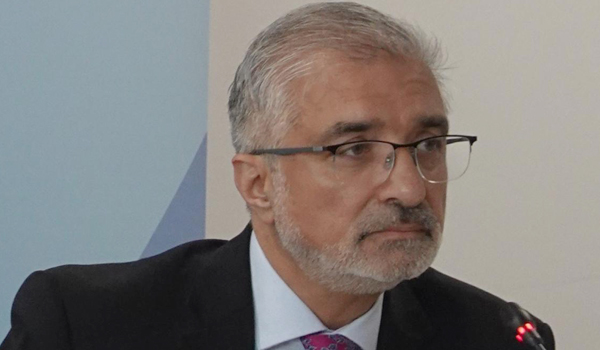Executive urged to prioritise funding for PSNI Recovery Plan
The Northern Ireland Policing Board has called on the Executive to prioritise the funding needed to support the Police Service of Northern Ireland (PSNI) Recovery Plan for additional officers and staff.
Policing Board chair Mukesh Sharma said: “Events of the last week have shown the real gaps in the operational capacity of the PSNI and despite Department of Finance approval of the PSNI Recovery Business Plan case to increase officer and staff numbers, no progress has been made on this due to ‘affordability issues’.
“The Board has supported the chief constable and the case for adequate funding, and has used every available public and private opportunity to call for the matter to be addressed. Political members of the Board have also used opportunities at the Assembly to support the funding calls and the Justice Minister has called for adequate funding for the wider justice family, including policing. In spite of this we are no further forward.
“While there is an improved opening budget position for PSNI this year, a gap of £21 million remains, and that’s before the cost of policing the recent disorder is factored in. Opportunities to address this gap through in-year monitoring have been highlighted but policing and the safety of our communities is too important to depend on the possibility of in-year monitoring for resourcing.”
The Recovery Plan business case was prepared to support the case to increase officer numbers to 7,000 and staff numbers to 2,572 over the course of the next three years. This required a total additional funding requirement of £201 million over five years. The business case was approved by the Department of Finance in May but has not yet been funded.
Mr Sharma said: “The Board appreciates the challenges across public services but we have only to reflect on the events of last week to see just how vital a service policing is. With current resourcing levels, the PSNI was not operationally capable of dealing with the disorder without mutual aid support. That is of serious concern.
“We know the day-to-day challenges and demands facing PSNI in delivery of the service are increasing, and without the additional numbers, the PSNI will not be able to deliver against all of the measures set in the 2025-2030 Policing Plan, issues which are also priorities in the Programme for Government.
“We have all seen the professionalism with which officers and staff serve, but the organisational resilience is waning, and we are putting lives of officers and the public at risk. It is clear to the Board that current officer numbers of 6,200 are no-longer tenable, having a serious detrimental effect on officer health and undermining the police service’s capacity to keep people safe.
“If not addressed, we may have reached the point where aspects of policing will quite simply have to be sacrificed in favour of policing high risk areas as opposed to the current approach of spreading resources thinly across all aspects of policing.”
Mr Sharma said he has now written to First and Deputy First Ministers to urge the Executive to prioritise funding for the delivery of the PSNI Recovery Plan to allow the increase of officer and staff numbers to progress.


